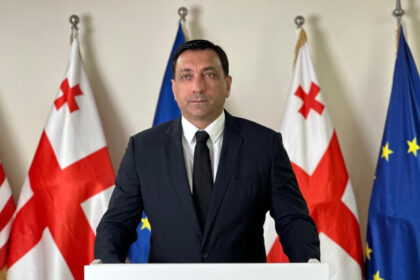**Georgia Faces Economic Crisis: Roman Gotsiridze Predicts “Money Famine”**
As the world grapples with the consequences of the ongoing global crisis, Georgia is bracing for a severe economic downturn. According to renowned Georgian expert and economist Roman Gotsiridze, the country will soon face a “money famine”. This phenomenon, which has been experienced before during the era of former President Eduard Shevardnadze, occurs when foreign funding dries up, leaving businesses and individuals struggling to access capital.
**The Return of “Tax Collection”**
Gotsiridze’s warning is dire. In conditions where external financial support is scarce, the Georgian government will have no choice but to turn its attention to taxing local businesses. This approach, reminiscent of the 1990s when Shevardnadze was in power, would see authorities targeting every sector and entity for revenue generation. The “tax collection” era promised a more aggressive tax regime, where both small and large businesses were required to contribute significantly to state coffers.
**Impact on Businesses**
The impact of this economic shift will be felt across various sectors of the economy. Small and medium-sized enterprises (SMEs), which are already vulnerable due to limited financial resources and access to capital, will bear the brunt of these measures. Larger businesses might also struggle to comply with new, more stringent tax regulations. This could lead to a stifling effect on innovation and investment within the country.
**The People’s Burden**
Beyond the business community, ordinary Georgians can also expect an increase in their financial burden as a result of this economic policy shift. Higher taxes and reduced access to credit will further strain household incomes, making it even harder for people to meet their basic needs. This is particularly concerning given the existing disparities in income and social inequality in Georgia.
**A Call for Action**
Gotsiridze’s warning should serve as a catalyst for policymakers and business leaders to reconsider their strategies and adapt to the changing economic landscape. It emphasizes the need for inclusive policy-making that prioritizes not just revenue generation but also stimulates growth, supports entrepreneurship, and protects the well-being of all segments of society.
Read More @ www.interpressnews.ge












